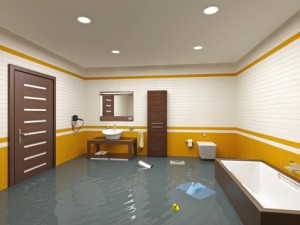
Protect your property from drain system failure with these tips
According to data analysis conducted by the Insurance Institute for Business & Home Safety, drain system failures cost the average homeowner $4,400, not including any deductibles. About 52 percent of drain system failures in the sample group were caused by sewer backups, and 37 percent were caused by material performance issues in the building’s pipe or drains. If you want to protect your property from the costly water damage associated with a drain system failure, keep the following tips in mind.
Invest in Drain Cleaning
Getting your drains cleaned regularly is an excellent way to prevent blockages from causing drain backups and water damage inside your home or business. The Drain Dudes provides fast and effective professional drain cleaning to clear away grease, hair, food debris, invasive roots, and foreign objects. For best results, you should call The Drain Dudes at the first sign of a slow drain, rather than waiting for the drain to back up completely.
Have Your Drains & Pipes Inspected
Sewer drain backups are more likely in buildings in areas developed prior to 1970, as the sanitary systems in these buildings are often connected to storm water systems. Problems caused by material performance issues such as pipe failure increase as the property ages. For both of these reasons, and as a good common-sense practice, it would be wise to have your older home or business inspected for potential drainage issues by a professional. The Drain Dudes is currently running a special entitling customers to a free inspection with drain cleaning.
Plant Trees Far from Sewer Lines
Invasive tree roots are a leading cause of sewer pipe failure and associate drain issues, so you should avoid planting trees near drain lines at all costs. If you have had problems with root incursion before, removing the trees will be the best way to prevent the regrowth of invasive roots. However, you can also try flushing the pipes with salt water or a chemical like RootX to prevent regrowth.
Used Raised Shelving in Basements
As a final precaution to help safeguard your property against costly water damage related to a drain backup, make sure you keep valuable or irreplaceable belongings away from drains whenever possible. For example, if you have a basement, you can install shelves to provide raised storage and keep your belongings safe from basement flooding.








